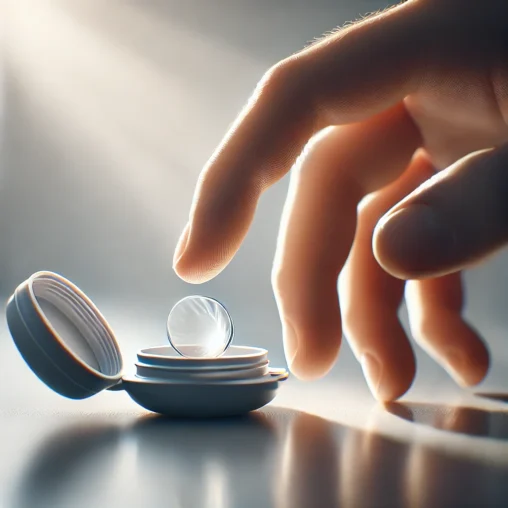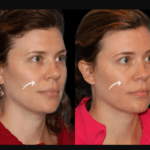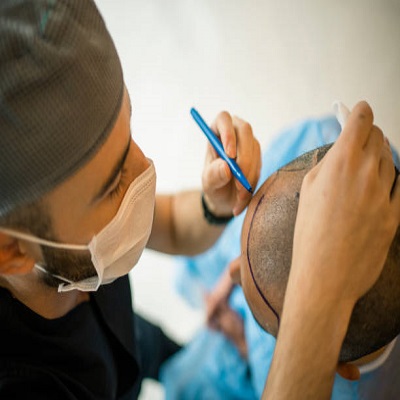Monthly contact lenses are convenient and cost-effective for people who prefer to wear lenses regularly. Suggested to be worn for up to 30 days, they need daily care to ensure health, comfort, and clarity. Whether you’re new to monthly lenses or need a refresher, learning proper hygiene and care is essential.
Here’s everything you need to know about maintaining monthly eye contact and keeping your eyes safe.
Why Monthly Lenses Need Extra Attention
Unlike daily disposables, which are worn once and discarded, monthly lenses are reused over time. This increases their exposure to dirt, protein deposits, and potential bacteria. Incorrect cleanup or continued wear can lead to discomfort, infections, or even more dangerous eye problems like corneal ulcers.
Best Practices for Monthly Contact Lens Care
-
Wash Hands Before Handling Lenses
Always clean your hands thoroughly with soap and water before touching your lenses. Dry them with a lint-free towel to avoid transferring particles to the lens surface.
-
Use Fresh Cleaning Solution Daily
Never reuse old lens solutions. Always remove the used fluid and fill the case with a clean multipurpose or hydrogen peroxide-based solution. This ensures proper disinfection and minimises the risk of infections.
-
Gently Rub and Rinse
Even if your solution is labelled “no-rub,” it’s still best practice to rub your lenses gently with your fingers for a few seconds before rinsing. This helps remove any surface buildup that could impact vision or comfort.
Storage Tips for Optimal Hygiene
- Keep your lens case clean by rinsing it with fresh solution—not tap water—and let it air dry upside down.
- Replace your lens case every 1–3 months to avoid microbial contamination.
- Prevent storing lenses in mineral water or domestic solutions, which can introduce harmful bacteria.
Signs You’re Not Caring for Lenses Properly
Are you noticing blurry vision, red eyes, discomfort, or sensitivity to light? These can be symptoms of your contact lenses not being washed correctly or that it’s time to swap them. It’s essential to pay attention to these symptoms and seek advice from an optician if they persist.
Don’t Wear Them Too Long
Wearing your lenses longer than their recommended duration can harm your eyes. Even if they sense okay, monthly contact lenses are used for 30 days from opening. Mark the date you open a new pair and set a reminder to discard them after the month.
Tips for On-the-Go Lens Users
If you lead a busy lifestyle, carry a lens travel kit with a compact case and travel-size solution. It’s also a good idea to have a backup pair of glasses if you need to remove your lenses while out.
Environmental Conditions and Lens Care
Climate changes—like dry air during the winter or exposure to allergens in the spring—can affect how your lenses feel. During dry months, consider using lubricating drops that are safe for contacts. Avoid swimming or showering with lenses in; water exposure can lead to eye infections.
What to Prevent When Wearing Monthly Eye Contacts
- Sleeping with lenses in unless approved by your eye care provider
- Utilizing saliva or tap water to moisten or clean lenses
- Extending wear beyond the 30-day limit
- Skipping regular eye check-ups
Make Eye Exams a Priority
Even with perfect lens care, scheduling regular visits to your optometrist is essential. They can examine your eye health, check your sight, and ensure your lenses are still fine and prescription.
Common Myths About Monthly Lenses – Debunked
Myth: “You can wear lenses longer if they still feel fine.”
Truth: The lens material breaks down over time. Wearing them beyond the recommended period risks eye damage, even if you don’t feel it immediately.
Myth: “Using more solutions means better cleaning.”
Truth: It’s not about quantity but technique—rubbing and proper rinsing matter more than soaking lenses in excess fluid.
Final Thoughts
Caring for your monthly eye contact isn’t complicated but requires consistency. By following these hygiene and management tips, you can extend the relief and performance of your lenses while keeping your eyes healthy.
Your vision is precious; don’t compromise by neglecting proper lens care. Whether at home or travelling, staying





